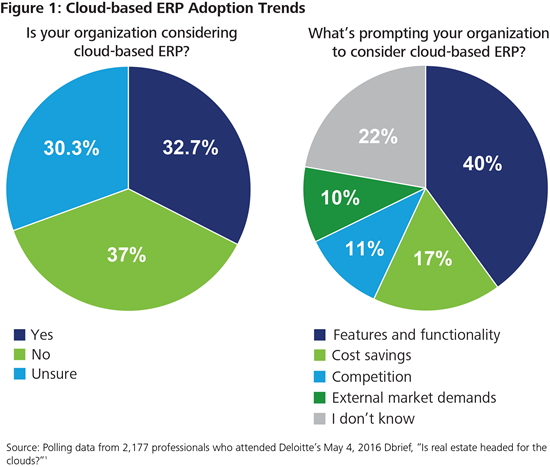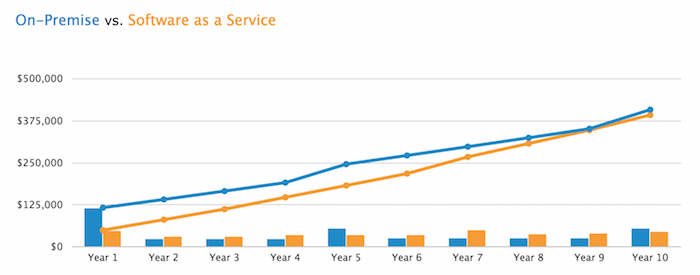
If your company is investigating an Enterprise Resource Planning (ERP) system for the first time, or you have had one for a while and are looking to upgrade, you have many choices. The industry has grown exponentially, and there are many vendors with a variety of products and services. Should your business choose an on-premise or a cloud-based ERP solution? While ERP systems based in the cloud have been around for some time, they are still new in comparison to on-premise systems.
An on-premise ERP system means that the servers and hardware are based at your office and maintained by the IT department. With a cloud-based solution, the product allows for remote management via the Internet. This is sometimes called Software-as-a-Service or SaaS.
Both options have advantages and disadvantages, and your decision will affect how the system performs now and in the future. Let’s take a look at a few of the factors that vary according to the model you choose.
Deployment Speed
Whatever you decide, ERP deployment does not happen overnight. Planning, training, and implementation must occur first. With an onsite solution, you will have to spend time on procuring the hardware and setting up the network and IT infrastructure.
Cloud ERP does not require hardware or an infrastructure, thus saving time at the front-end. This is particularly significant when you are implementing the system at multiple sites. Once installed, cloud-based ERP is easier and faster to expand and scale as the business grows or new locations are incorporated.

Unlocking the Benefits of Cloud-based ERP
Total Cost of Ownership
Due to the initial cost of hardware and infrastructure, on-premise ERP will mean a higher upfront cost. You will also need to factor in the cost of your internal IT staff time to maintain the system.
Setup costs for a cloud-based option are generally lower. Maintenance costs are also not a factor if your ERP is hosted off-site and the vendor is responsible for maintenance on their end. Your company will generally pay costs for long-term licensing at the onset.
What is critical when weighing the cost of both options over their expected lifespan is to compare apples with apples. Careful analysis is recommended to ensure that all costs, current, and future, are accounted for and that you work out the total cost of ownership. This will come down to your unique requirements and infrastructure.
Another advantage of cloud ERP software, particularly for the small and medium-sized businesses, is a pay-as-you-use plan that is more predictable and easier to budget. Some systems can work in a hybrid fashion with some aspects based on-site and others on the cloud.
Upgrades and Enhancements
While on-site ERP software can be enhanced, the process is easier and faster on cloud ERP solutions. Regular upgrades are done automatically with no effort on the part of the customer and no down time. This could provide you with additional functionality that might not be practical with an on-premise system.
System Performance and Accessibility
Both systems have performance vulnerabilities. With an in-house product, you have more control over the solution, provided you have the necessary internal skills. The cloud can offer greater redundancy if not used correctly. Scaling the system up or incorporating new branches or outlets and integrating with mobile users is easier with a cloud-based approach.
Customizations
Cloud-based systems offer a range of configurations to suit various business needs. As Business.com points out, taking advantage of cloud-based customization can help businesses stay “change ready” and competitive. With more intricate and specific customizations, particularly with certain functional suites, an on-premise ERP application could be more suitable if your business has the resources and time to build everything from scratch and maintain it by hand.

6 Tips To Implement Cloud ERP properly
Features and Applications
While the cloud-based systems are flexible and scalable, many ERP vendors offer limited product suites that focus primarily on specific applications. If a broader solution is required, on-premise could, in certain circumstances, prove more practical.
While ERP has never enjoyed a one-size-fits-all approach, there is enough flexibility to find a solution that fits your business now and will grow with it. There are no right or wrong answers; it all depends on the way in which your company operates, what your requirements are, and what system will be best for your needs. Cloud-based ERP has presented small, medium, and large businesses with new opportunities for streamlining their operations.





